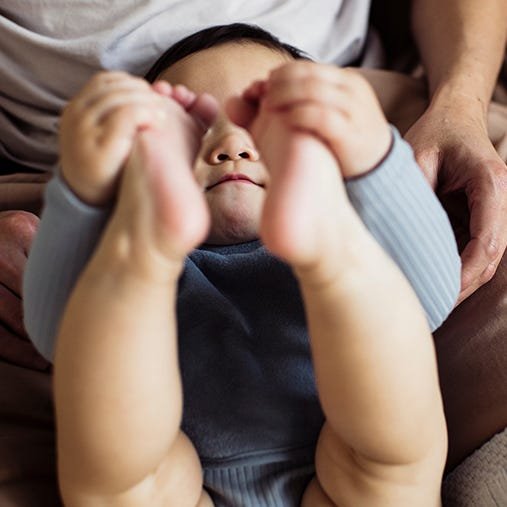10 top tips for weaning off the dummy
Try these tips and tricks to help your child make the move to a dummy-free life, whenever you feel that it’s the right time for you and your baby.
1. Distract and offer alternatives
You can give your baby a new cuddly toy or a soft blanket to help comfort them in place of their dummy. Talk to them and tell them that they can swap their dummy for a lovely new toy.
2. Reward them
As they get older, you can try to introduce a reward chart and give them a sticker for not using their dummy. Once their chart is full, offer them an extra special treat for doing so well.
3. Say hi to the Dummy Fairy
Toddlers love magical stories, so talking to them about the Dummy Fairy and how they're going to come and give their dummy to the baby fairies will build excitement.
4. Go seasonal
If the timing is right, you could hang their dummy on the Christmas tree for Santa to take back to the North Pole. Or leave it out for the Easter bunny to swap for a sweet treat.
5. Encourage them to communicate and self-settle
When you're trying to move away from the dummy, it's a good idea to consider why they're crying before instantly rushing to give them their soother. If you can teach them to communicate their needs and tune in to their emotions, they'll be more likely to self-soothe without reaching for their dummy.
6. Time it right
Try not to take your child’s dummy away from them during a time of change or when their routine is unsettled (if you're moving house, transitioning from cot to bed, welcoming a new baby into the family). Babies can build a strong bond with their dummies and use them to manage stress and self-soothe if they're upset or feeling unwell.
7. Out of sight, out of mind
Keep their dummy hidden and out of reach to help them avoid temptation.
8. Set a limit
You can try limiting dummy use to bedtime, nap times, and stressful situations (like a trip to the doctor’s office).
9. Storytime
Read them bedtime stories about saying bye-bye to the dummy. There are tons of children's books out there that are designed to support babies as they give up their dummies.
10. Be patient and stay strong
The process of moving on from their dummy can be difficult and stressful for babies and parents. Try not to put too much pressure on yourself (or them), be patient, and remember that you'll get there in the end.










